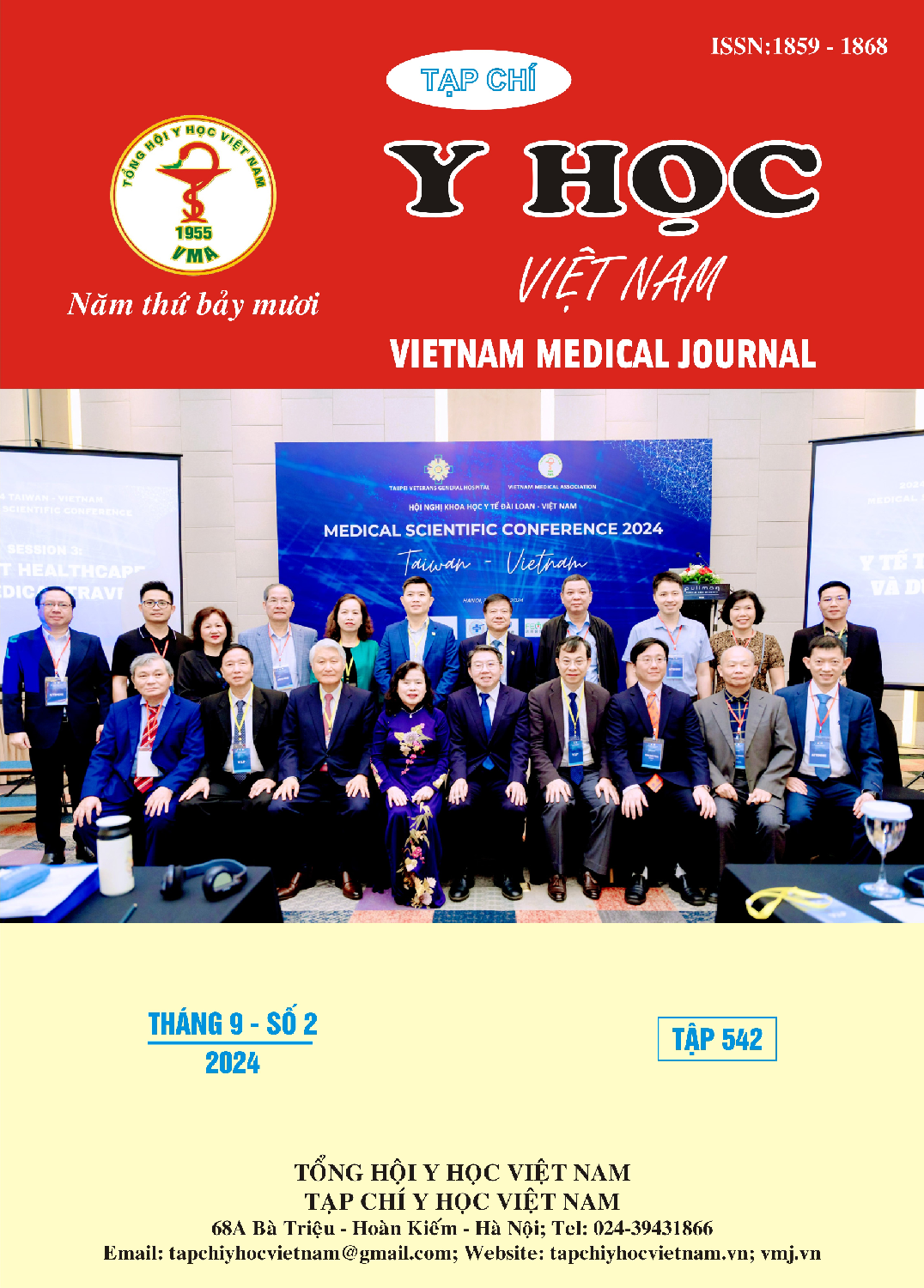SURVEY OF SOME FACTORS RELATED TO ANXIETY DISORDERS IN PATIENTS WITH IRRIGABLE BOWEL SYNDROME TREATMENT AT MILITARY HOSPITAL 175
Main Article Content
Abstract
Research objective: Survey on some factors related to anxiety disorders in irritable bowel syndrome patients treated at Military Hospital 175. Subject and methods: Cross-sectional descriptive study of 163 patients diagnosed with irritable bowel syndrome treated at Military Hospital 175 from June 2022 to March 2023 Results: The proportion of male patients is 58.3%. The age group ≥ 60 accounts for the highest proportion at 44.2%. The average age of the subject group is 55.7 ± 15.7 years. There is a statistically significant difference in the rate of anxiety disorders between groups with college, university, and university degrees and primary and secondary school groups; Understanding the disease, complying with treatment, specific fear. Primary and secondary education level; Unclear understanding of the disease, poor treatment compliance, and specific fear increase the risk of anxiety disorders. There is a positive correlation between Halmiton score and the time symptoms of anxiety disorder appear. There is a weak positive correlation between the time of symptoms of anxiety disorder and Halmiton score. Conclusion: Factors related to anxiety disorders in patients with irritable bowel syndrome include lower education level, shorter time to be diagnosed with irritable bowel syndrome since the first time, unclear understanding of the disease, and compliance with the disease. Treatment is not good and is accompanied by specific fear. There is a weak positive correlation between the time of symptoms of anxiety disorder and the Hamilton scale score.
Article Details
Keywords
Anxiety disorders, irritable bowel syndrome.
References
2. Hannah R. et al. (2019), "Mental Health", Our World in Data.
3. Managing Stress and Anxiety (2018), Anxiety and Depression Association of America, https://adaa.org/living-with-anxiety/managing-anxiety, ngày truy cập 31-10-2019.
4. Anbardan S. J. et al. (2012), "Gender Role in Irritable Bowel Syndrome: A Comparison of Irritable Bowel Syndrome Module (ROME III) Between Male and Female Patients", J Neurogastroenterol Motil. 18 (1), pp. 70-77.
5. Nguyễn Tiến Dũng (2014), Đánh giá hội chứng ruột kích thích bằng bài bổ thổ trung phương thể tỳ dương hư, Trường đại học Y Hà Nội.
6. Nguyễn Thị Phương Thảo (2019), Khảo sát tỉ lệ rối loạn lo âu lan tỏa và các yếu tố liên quan trên bệnh nhân hội chứng ruột kích thích, Luận văn Thạc sỹ Y học, Đại học Y dược Thành phố Hồ Chí Minh.


